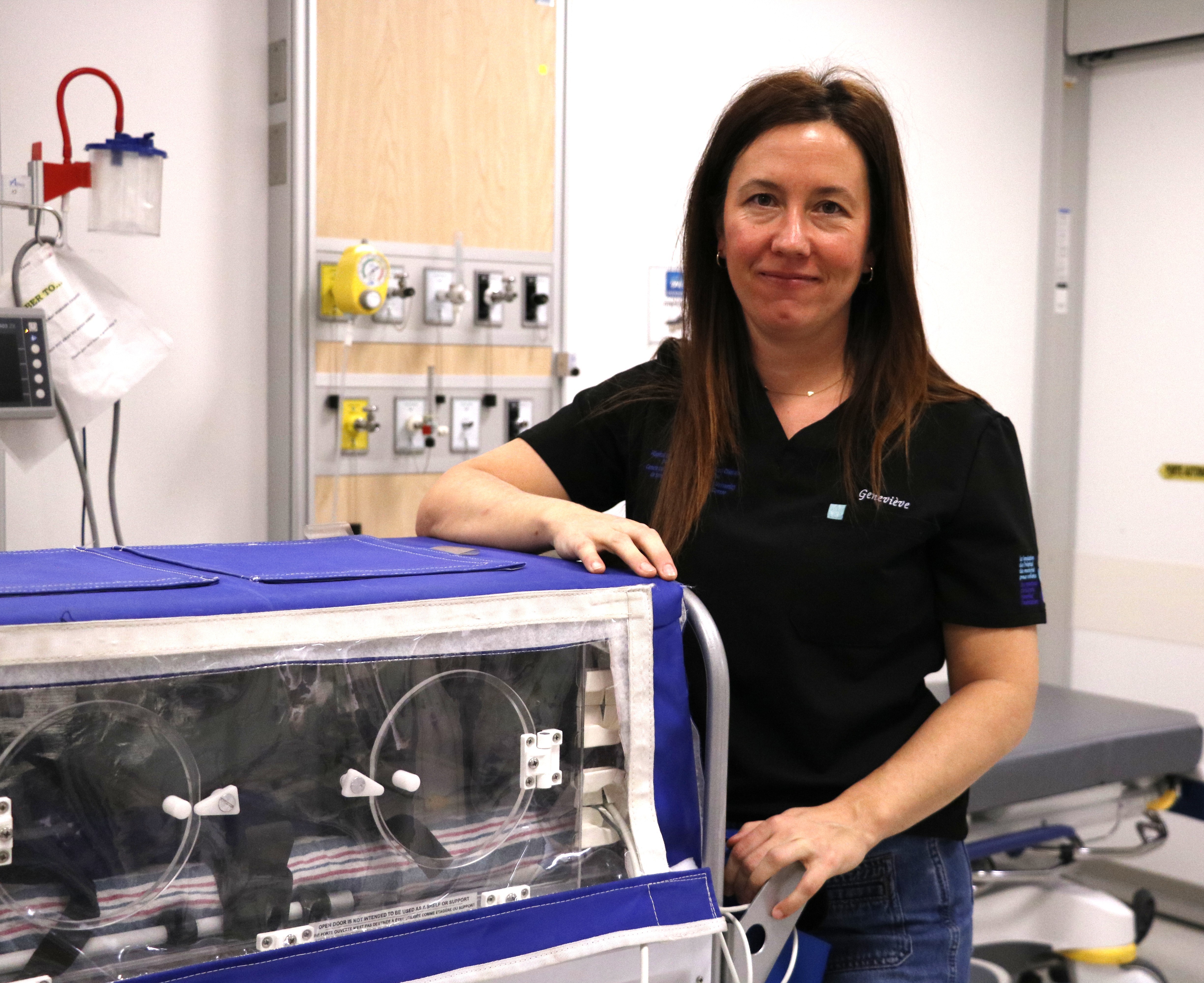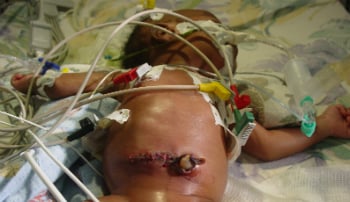
Celebrating Critical Care Transport Nurses at the MCH
18 February 2026
Rise in respiratory infections and measles outbreak: important infection prevention measures at the Montreal Children’s Hospital.
Read moreWelcome to the Montreal Children's Hospital

3 December 2013
The difference in neonatal surgical care and outcomes between sub-Saharan Africa and the developed world cannot be described as a gap. It is a gulf.
Dispatch # 6
The difference in neonatal surgical care and outcomes between sub-Saharan Africa and the developed world cannot be described as a gap. It is a gulf. No congenital condition depicts that gulf better than gastroschisis, an anomaly where a baby is born with a defect in the abdominal wall, causing herniation of intestines outside the abdominal cavity. In Canada, more than 96% of these patients survive, and the overwhelming majority of survivors enjoy a good quality of life. In fact, when managing gastroschisis, my motto is “no baby left behind,” because even those with the most severe anomalies can do very well.
No physician or surgeon in Kigali has ever seen a baby with gastroschisis survive – not a single baby. They often present late and are sent home to die.
Last week, a newborn baby boy with gastroschisis arrived. I felt strongly that he will be the first survivor. He presented immediately after birth, was in stable condition, and the intestines were in relatively good shape by gastroschisis standards. However, the challenges immediately began. We could not place a silo, a specially made bag that can house the bowel, because they are not available in Rwanda. We then tried to reduce the bowel at the bedside and failed – the baby’s abdominal cavity was just too small. We needed to surgically reduce the intestine and close the abdomen. However, general anesthesia at the UniversityHospital was not an option, because there was no ability to support the baby’s ventilation after surgery. A ray of hope suddenly emerged. The baby could be transferred to the RwandaMilitaryHospital where 4 ventilated NICU beds were available. We did just that the next day, and went to the MilitaryHospital to perform the operation. At surgery, we still could not completely close the abdomen, so we used the plastic of an IV bag as a temporary cover. The baby was then transferred to the NICU post-operatively. Yesterday, three days after the first operation, we returned to the MilitaryHospital and easily and successfully closed the abdomen at the bedside. The baby was doing very well.
The battle of reducing the intestines and closing the abdomen was won. Now, we just had to wait a few days for the intestines to work and then feed the baby. Sadly, a couple of hours later, we were informed that the baby died because of difficulties with the ventilator.
A couple of days before, baby Angel, the 1300-gram baby who miraculously survived without nutrition for two weeks and whom I wrote about in my 3rd dispatch, also died. At least two more babies are in very tenuous condition as I write this.
Some may question whether what I’ve done with these two babies who have died was appropriate in the first place. Should it be a priority in a place with severely limited resources? Does it matter if mortality is reduced from 100% to 99%? What about the many babies who will continue to arrive after I leave? I don’t have the answers to these questions. All I know is that each baby has parents who love him or her, and that if there is a baby who can be salvaged, I will do all I can to accomplish that. Hope is not statistical. And yes, if we can prove that a baby with gastroschisis can survive, the anomaly will lose its power to intimidate health care workers, and at least some select babies will be saved.
This is a difficult place emotionally for a pediatric surgeon. We have diverse practices and treat many diseases, but saving babies with congenital anomalies is a passion for most of us.
My consolation is my conviction that these babies who have passed are in a much better place.
Photo: Gastroschisis final closure. The abdomen completely closed just hours before the baby’s demise.
Dr. Sherif Emil is a pediatric surgeon and Director of Pediatric Surgery at the Montreal Children’s Hospital. His trip to Rwanda is part of a McGill program to train surgical residents at the National University of Rwanda and the Centre Hospitalier Universitaire Kigali.
Read more dispatches: